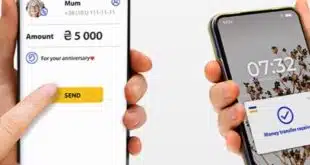PayPal Inc. will introduce a new service for its mobile-payments product, PayPal Mobile, that will allow users to make remote purchases from merchants that have mobile Web sites. Kevin Dulsky, senior director and general manager for PayPal Mobile, revealed the new service during a panel discussion at a prepaid card conference this week in Las Vegas. Speaking to Digital Transactions News, he refused to give details but said “it's a good bet” the new mobile-commerce service could be launched within one to two months. Currently, 10-month-old PayPal Mobile allows PayPal users to use their handsets to pay each other and make charitable donations. It also has a feature, called Text to Buy, that lets users make on-the-spot purchases of a narrow range of products like DVDs and CDs in response to promotions advertised on signs or in print advertisements. The new service, however, would let shoppers use their cell phones and PayPal accounts to buy goods from retailers that maintain sites that can be accessed on the mobile Internet. Companies can configure their Web sites for access via mobile phones through a technology standard called Wireless Application Protocol (WAP). PayPal Mobile relies on short-message service (SMS) transmissions to trigger payments, which it handles on the back end as it does those generated at e-commerce sites. To use Text to Buy, users send a text message that includes a short code and product identifier, both of which are included in the ad. Similarly, individuals who are PayPal accountholders can pay each other by sending SMS transmissions. These transactions are free to both senders and receivers. San Jose, Calif.-based PayPal has not said what its merchant fees are for Text to Buy, but when it introduced PayPal Mobil last spring, Dulsky said transaction charges would carry a “similar structure” to that PayPal imposes on businesses, which pay anywhere from 1.9% plus 30 cents to 2.9% plus 30 cents per transaction.
Check Also
U.S. Consumers Embrace Digital Remittances, According to Visa Research
Some 55% of remittance-sending consumers expect to send more or the same amount of money …




